Some Spells Are Bigger
By Krista Caballero
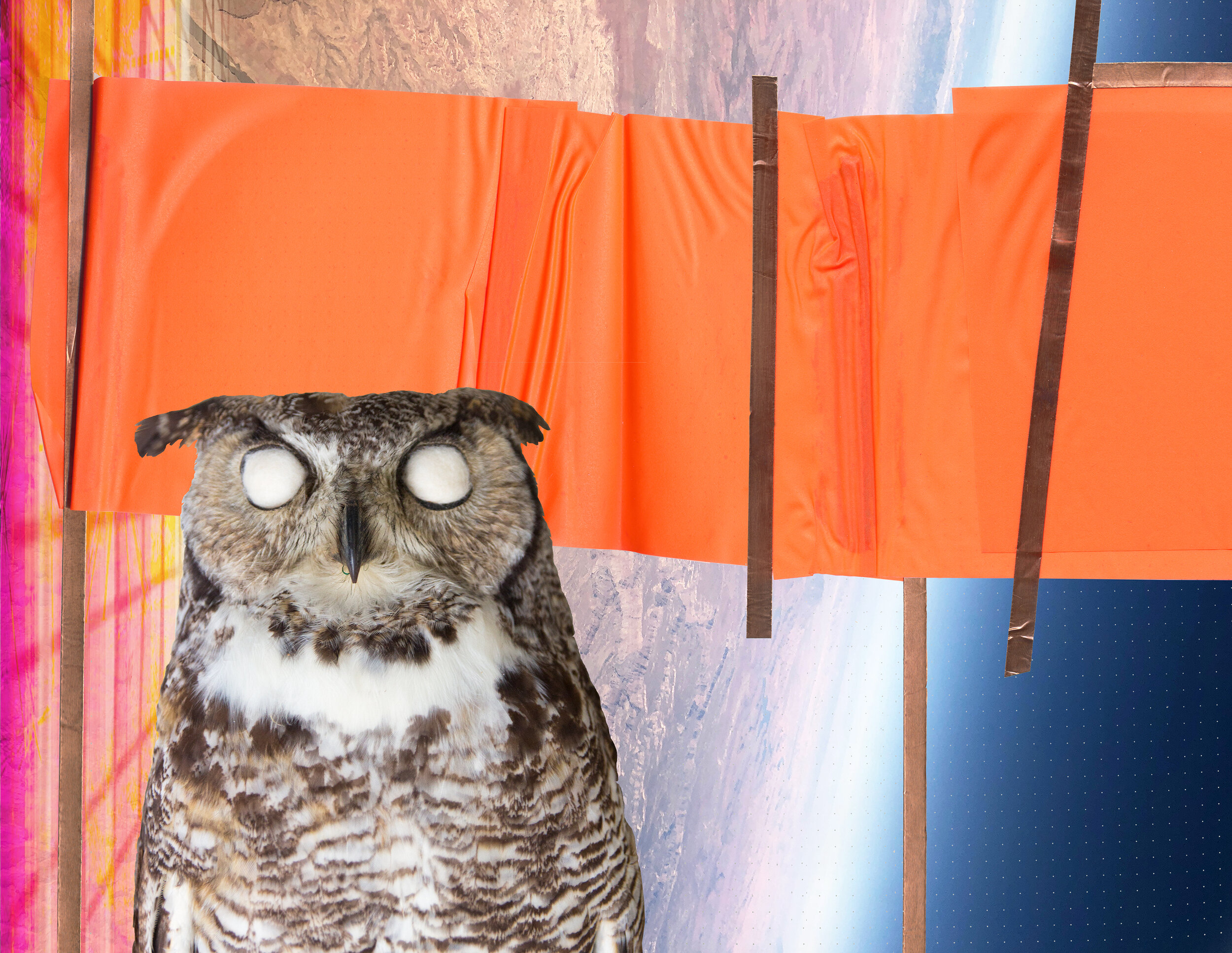
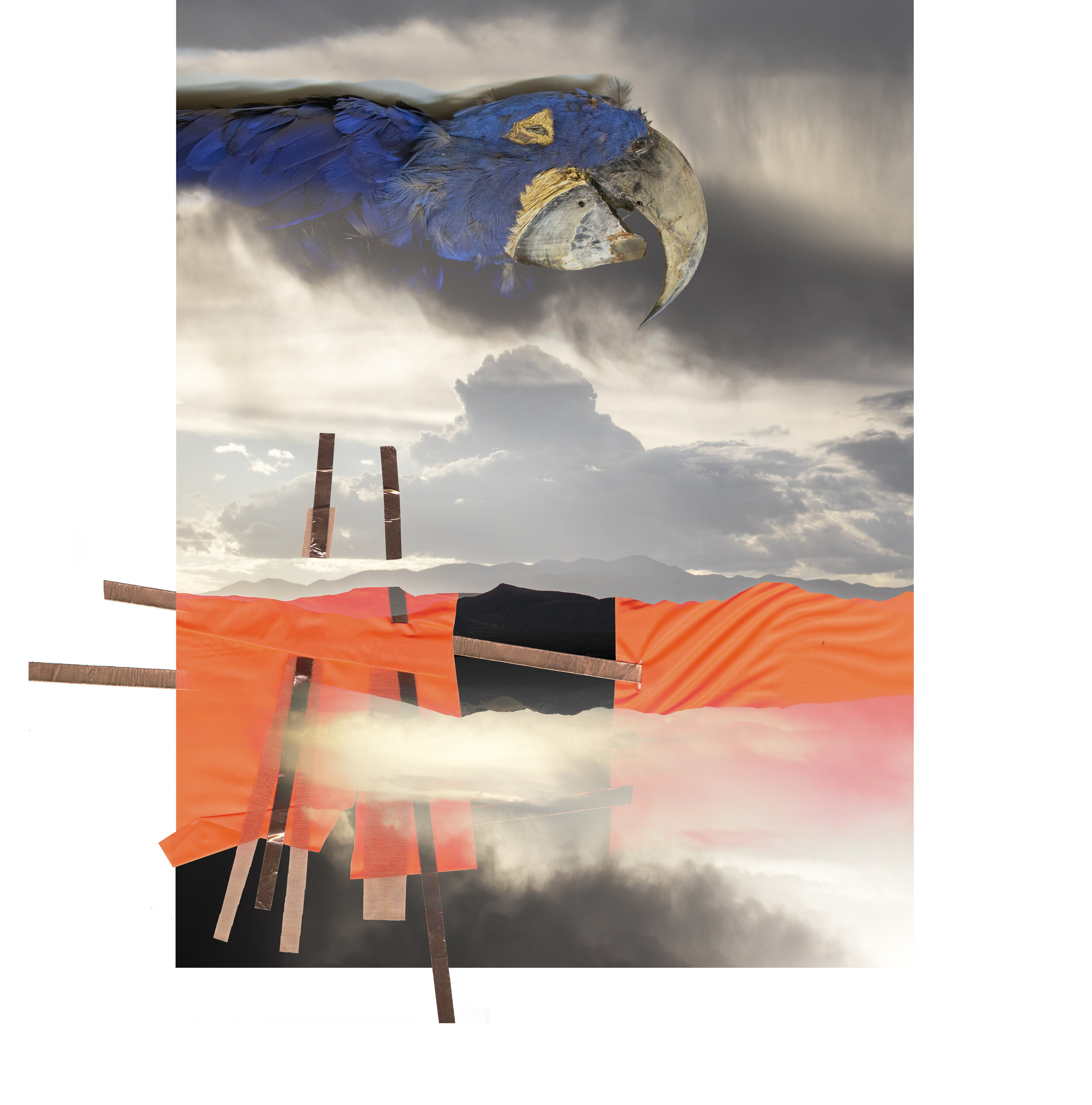
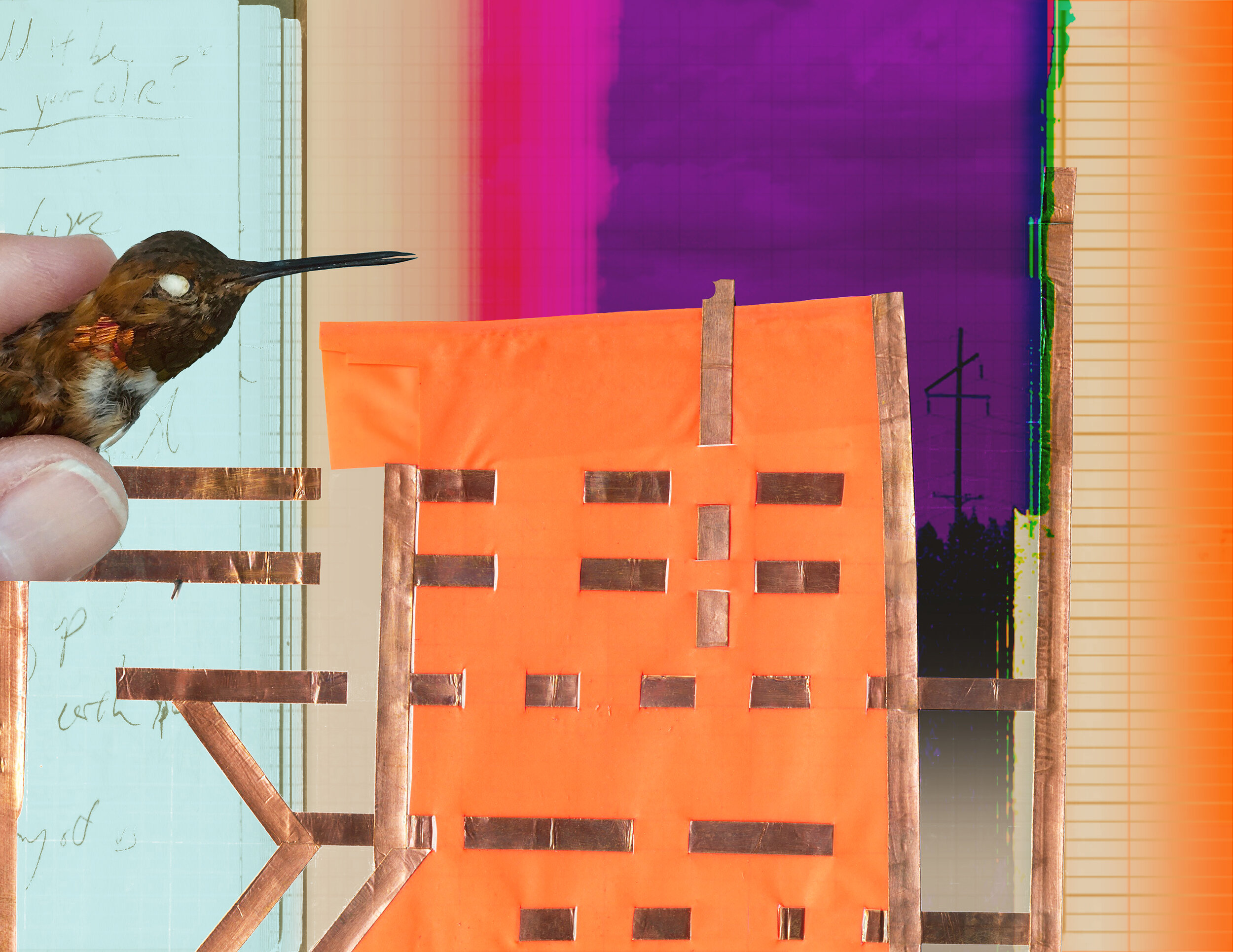
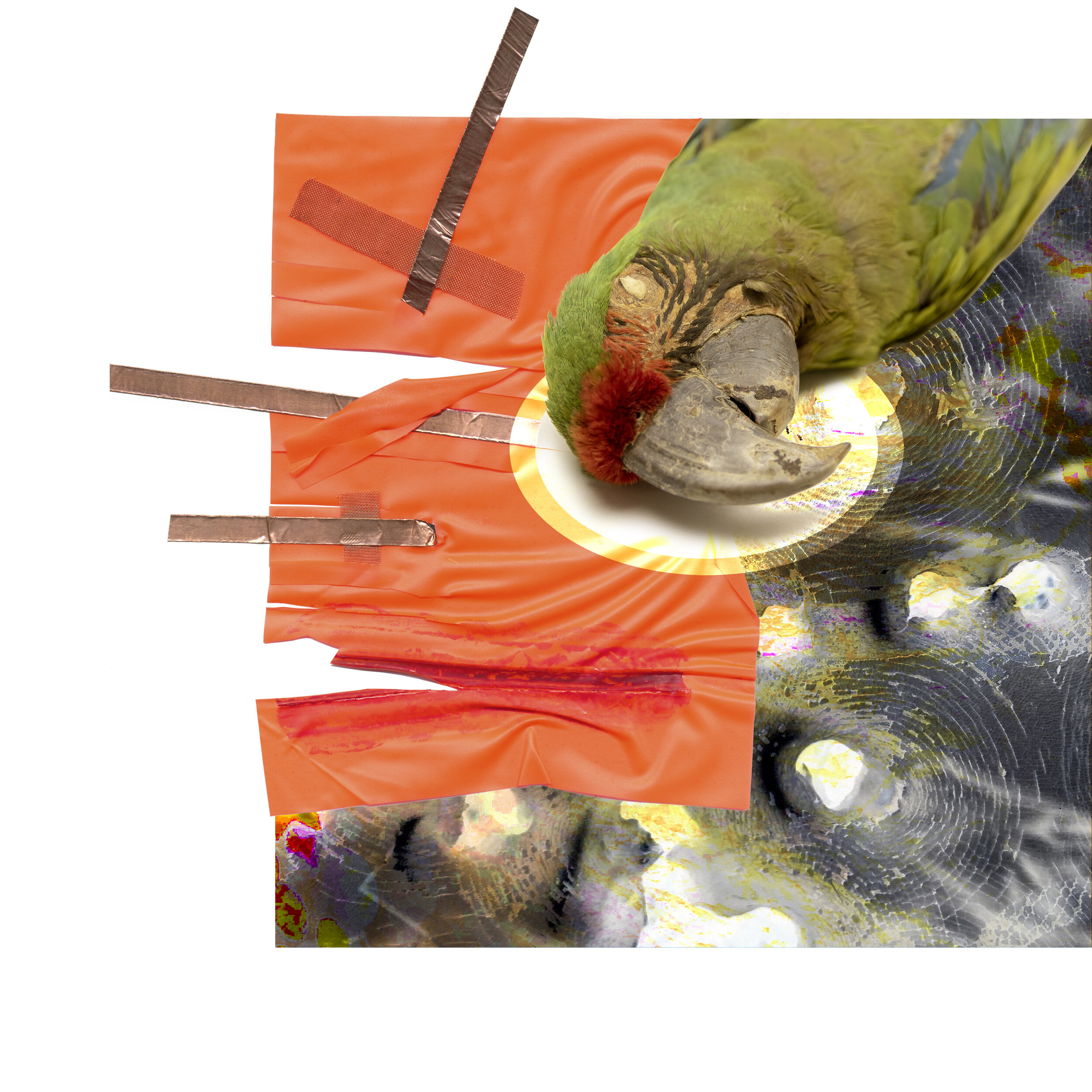
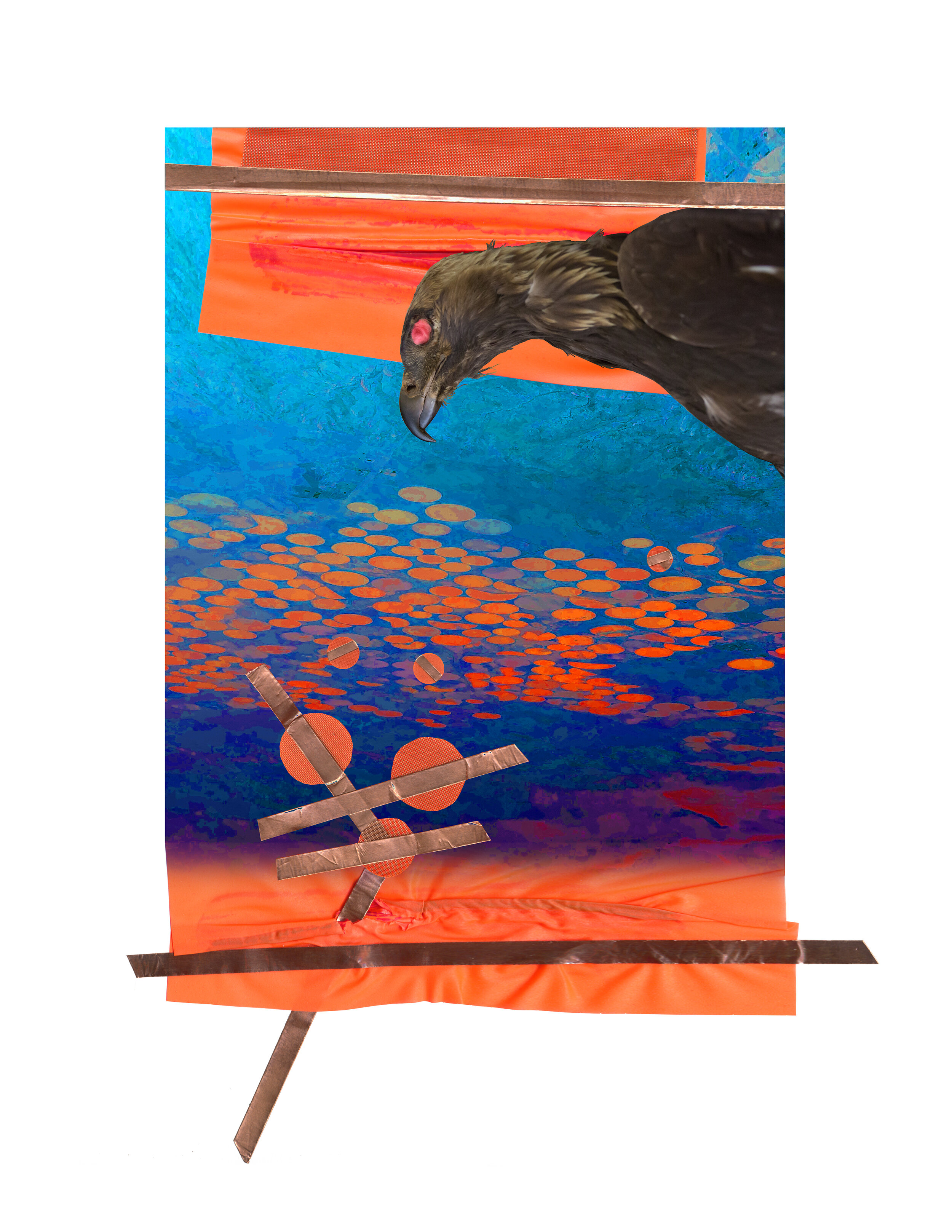
“In order to maintain relationships, you do certain things to show respect among beings. Another way of saying it is that these are kin relationships. You are related to different lifeforms in different ways.”
Vine Deloria, Jr.[1]
Some Spells Are Bigger is a photographic exploration of being, loss, and agency and stems from research I conducted as a Smithsonian Artist Research Fellow at the National Bird Collection in the Division of Birds at the National Museum of Natural History.* This archive houses over 640,000 specimens––the third largest bird collection in the world––including an “Extinct Collection” that is kept in a high security, climate-controlled vault.[2]
This ongoing series of photographic composites emerged as a way to process my experiences in the collections and as a way to try to make sense of what it means to archive other beings. I combine imagery taken at the National Bird Collection with field-based photographic research as well as scans of mixed media collages from my sketchbook––my own archive of symbols focused on survey markers, alarms, signals, and conduit lines. The work is also the result of grappling with knowledge systems that understand interspecies relationships differently. It is deeply influenced by, and indebted to, Indigenous scholars such as Vine Deloria, Jr., Zoe Todd, Gregory Cajete, Kyle Whyte, and many others who recognize that:
Kinship is rooted in specific obligations and responsibilities that are relational and interdependent.
Mutual reciprocity is central; kinship cannot benefit only one party.
Matters of (in)justice are entangled with who we define and value as kin.
In this work I acknowledge and recognize that birds in archives must be thought of as kin. Reflecting upon this issue’s theme, I wonder what adaptation means in the context of kinship. How might we adapt to changing worlds in ways that are just and value all life forms? And how might I as an artist practice kinship through archives?[3]
Adaptation is rooted in ideas about change and being flexible, becoming “better” suited to an environment, with focus often placed on the singular rather than collective. Adaptation in the context of kinship acknowledges that all lifeforms (nonhuman animals, plants, and landforms) are in relationship. Métis anthropologist and scholar of Indigenous studies Zoe Todd states it this way: “Remember that many orders of existence & being in this space-time are built on a deep relationality between us & the universe(s). Remember, deep in your cells, what it is to exist in tender co-constitution.”[4]
In a sense, Some Spells Are Bigger seeks to put the individual birds I have encountered in the archive back into the world as messengers to ask us all to consider more deeply the worlds we inhabit and co-create. I have the uncanny sense that these beings are speaking to us across time. They are certainly more than mere “skins” to be studied and archived. Even from the vault, they are our kin––watching, warning, and signaling us to radically reconsider the role humanity plays in a more-than-human world.
[1] Deloria, Vine, et al. Spirit & Reason: The Vine Deloria, Jr., Reader. Fulcrum Pub.,1999.
[2] Birds | Smithsonian National Museum of Natural History. Division of Birds, National Museum of Natural History, Smithsonian Institution. https://naturalhistory.si.edu/research/vertebrate-zoology/birds. Accessed 7 Jan. 2021.
[3] Kanngieser, Anja., & Todd, Zoe. “From Environmental Case Study to Environmental Kin Study.” History & Theory, vol. 59, no. 3, Sept. 2020, pp. 385–393. DOI:10.1111/hith.12166.
[4] Todd, Zoe. “The end of (the capitalist white supremacist heteropatriarchal hate-full order of) the world, a survival guide.” Savage Minds, 13 Nov. 2017. https://savageminds.org/2017/11/13/the-end-of-the-capitalist-white-supremacist-heteropatriarchal-hate-full-order-of-the-world-a-survival-guide/#more-22404. Accessed 18 Jan. 2021.
* Research conducted in collaboration with Frank Ekeberg and Gwyneira Isaac as a part of Birding the Future.
Krista Caballero is an interdisciplinary artist exploring issues of agency, survival, and environmental change. Moving freely between traditional and emerging media, her work explores the messy and often surprising encounters between human, ecological, and technological landscapes. Caballero is Co-Director of the Center for Experimental Humanities at Bard College in New York.
